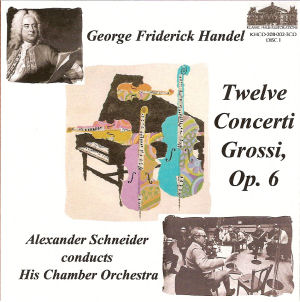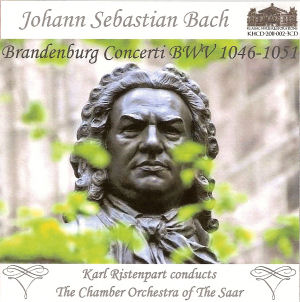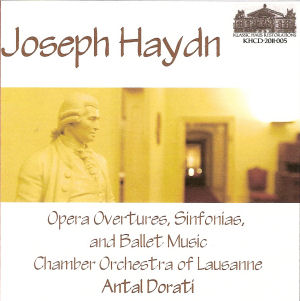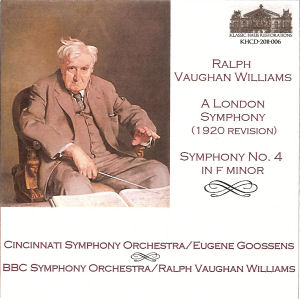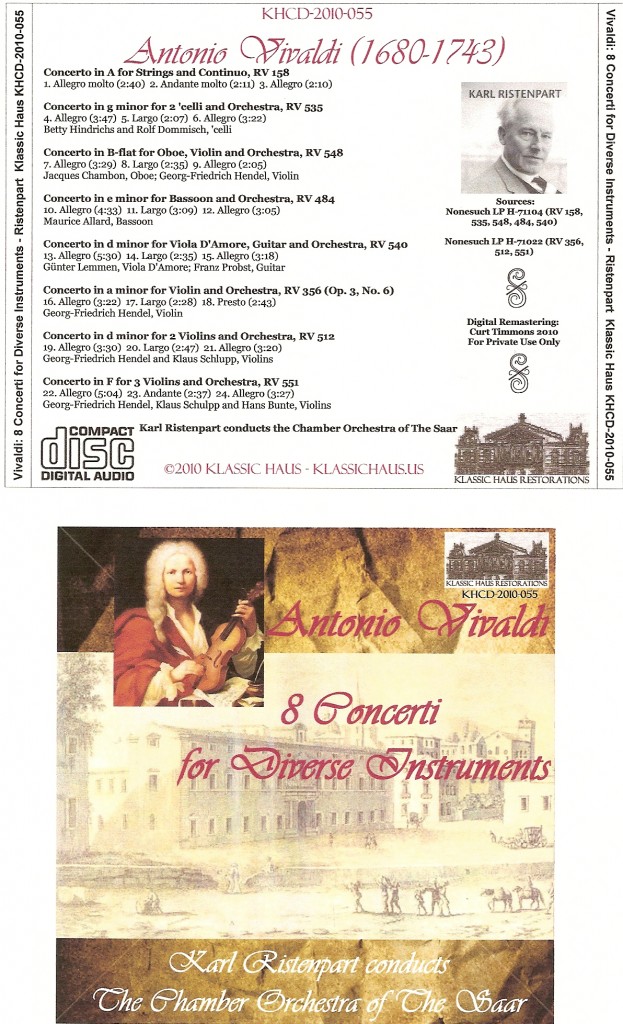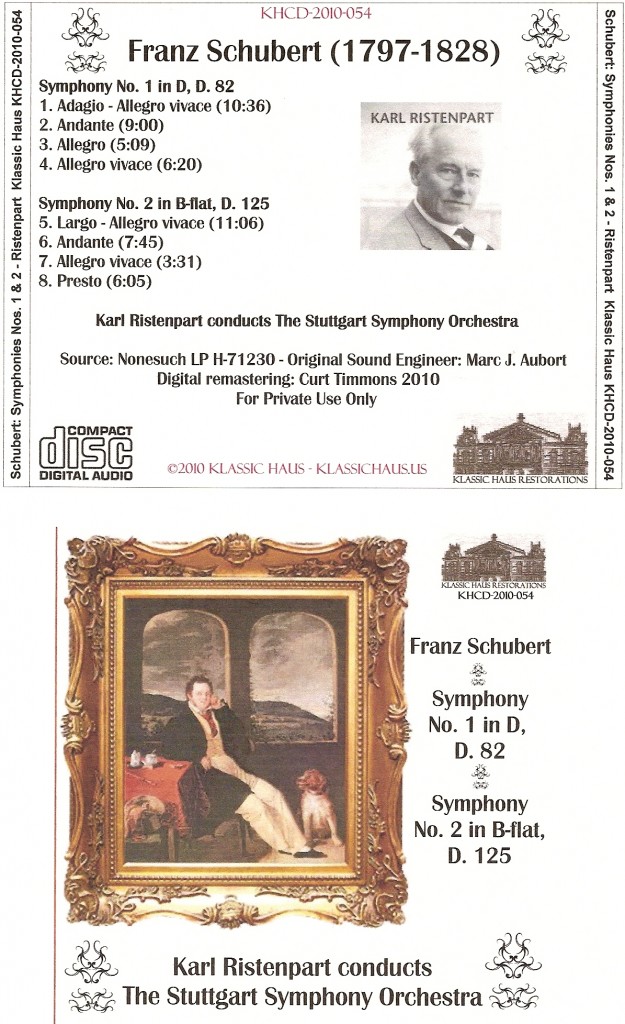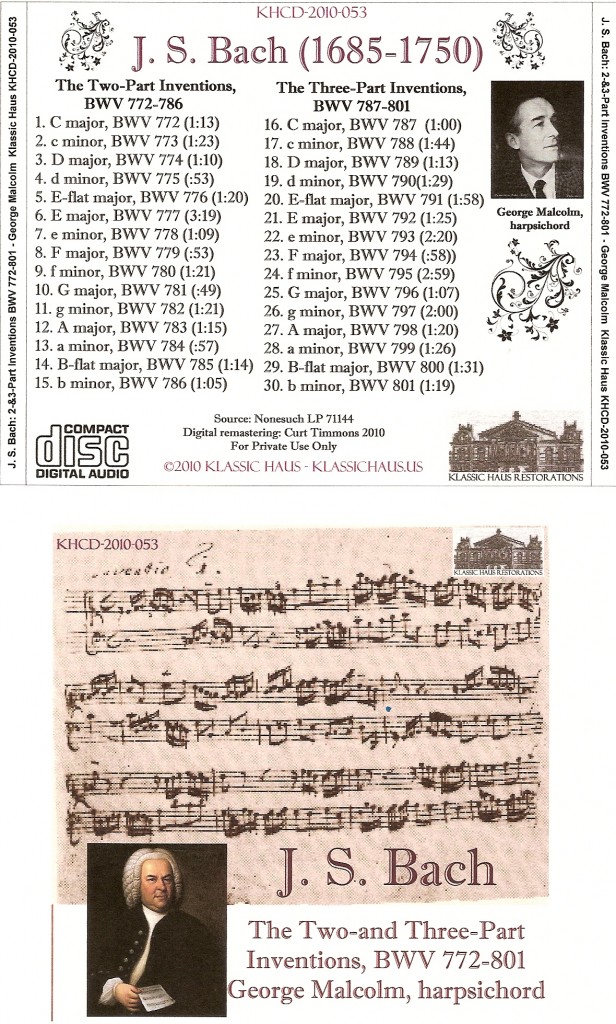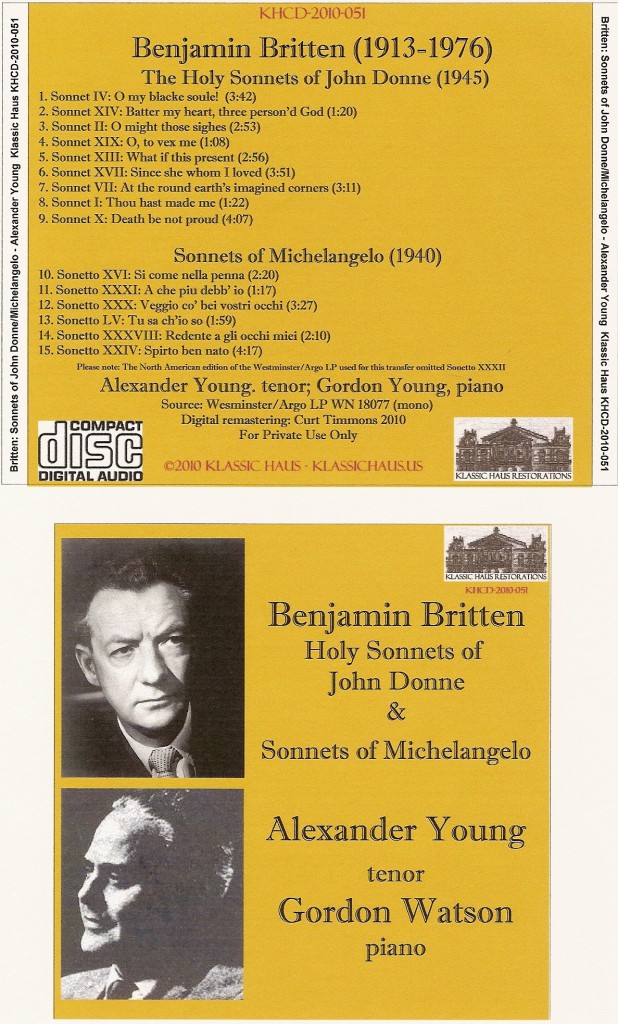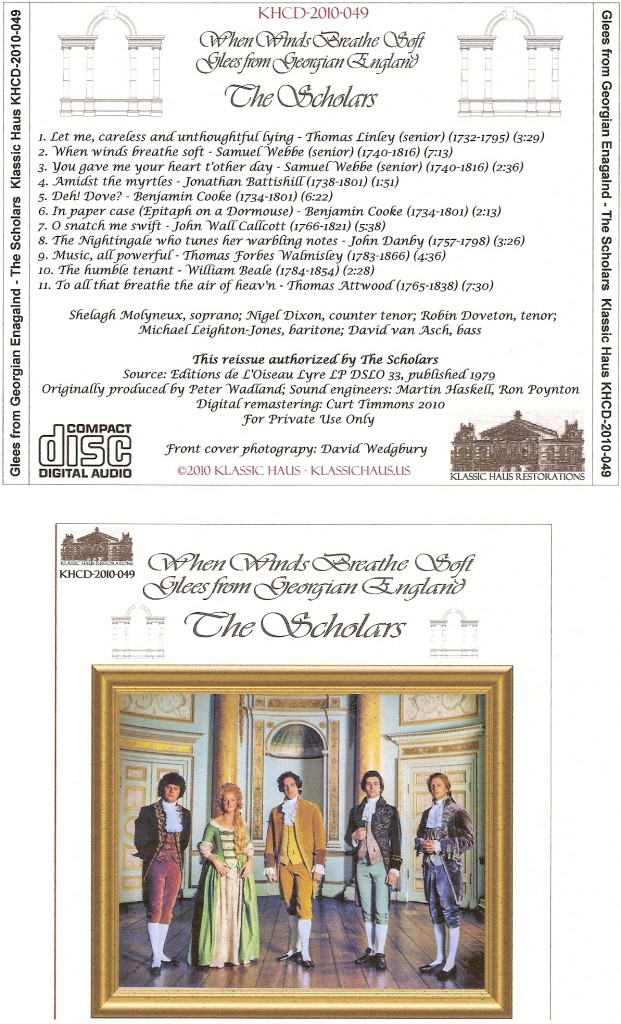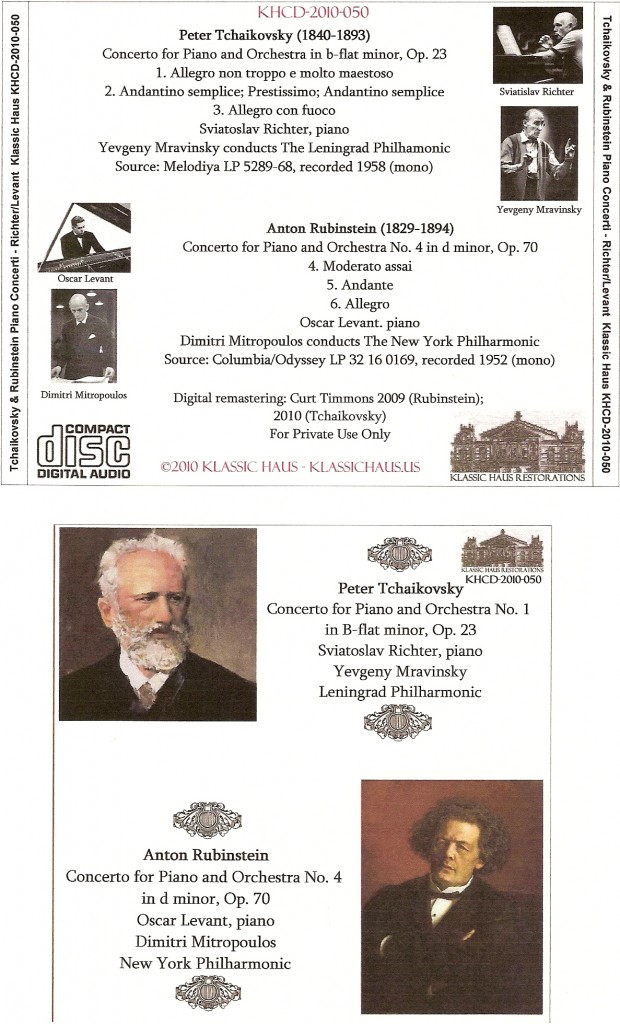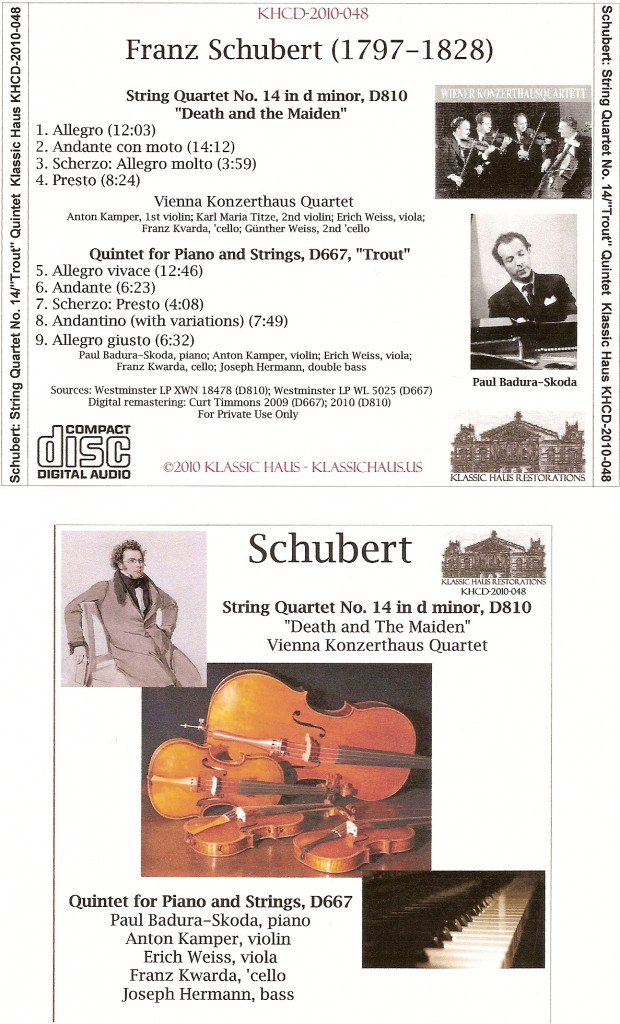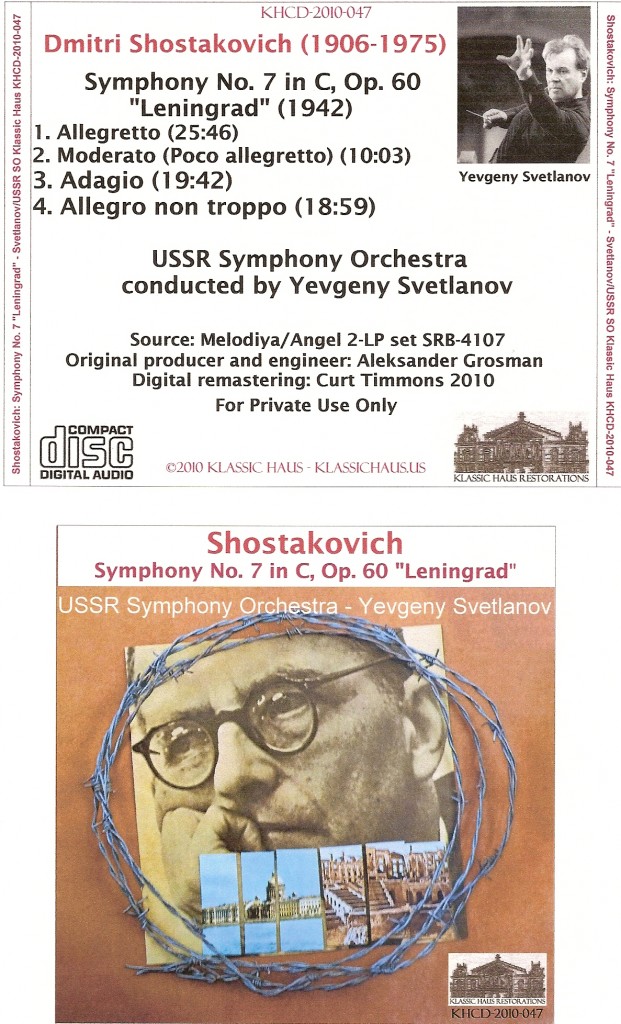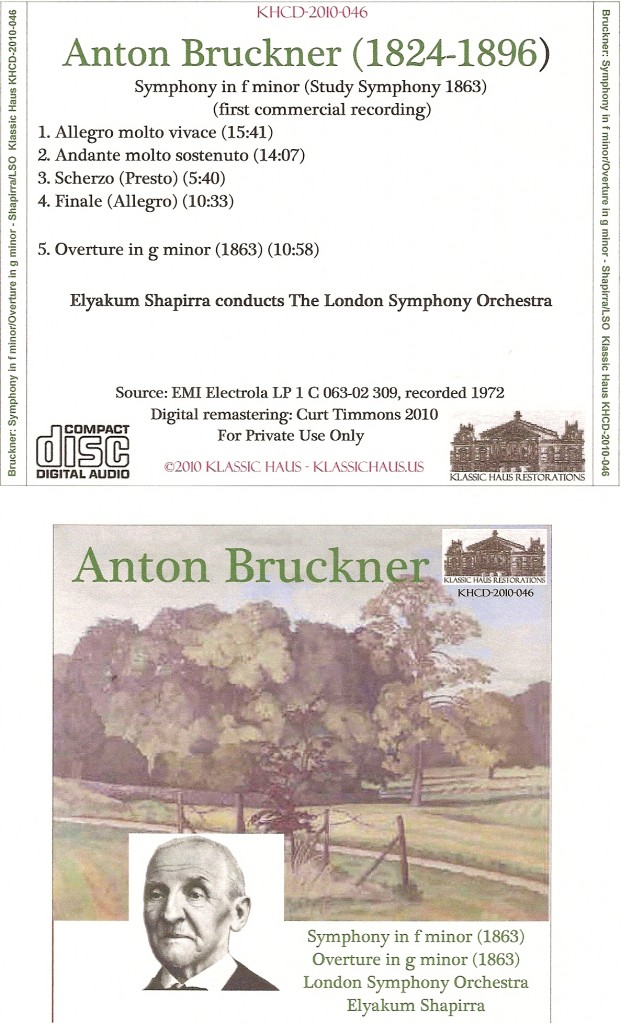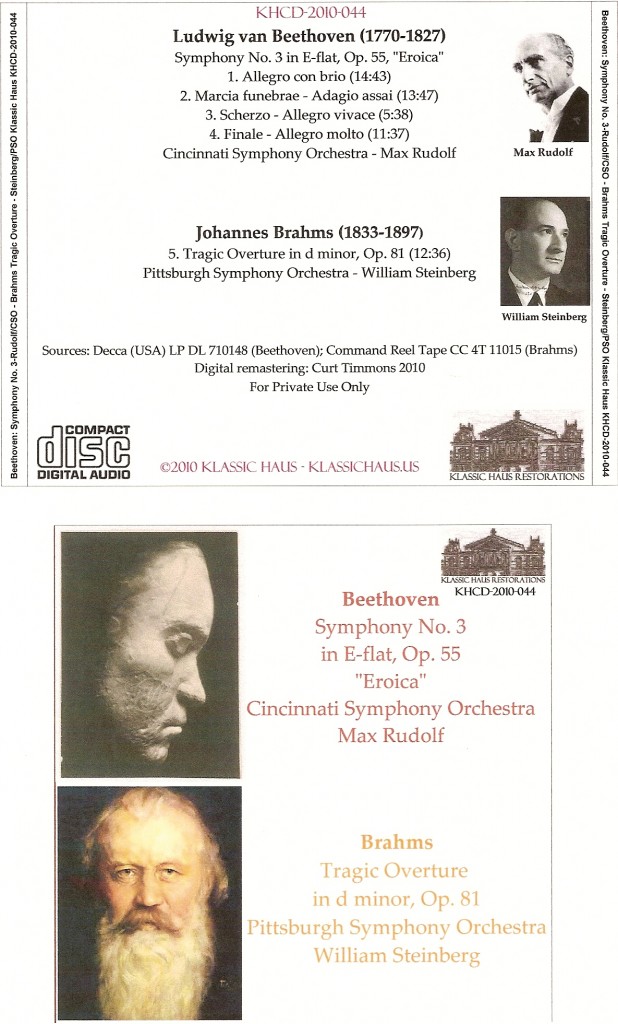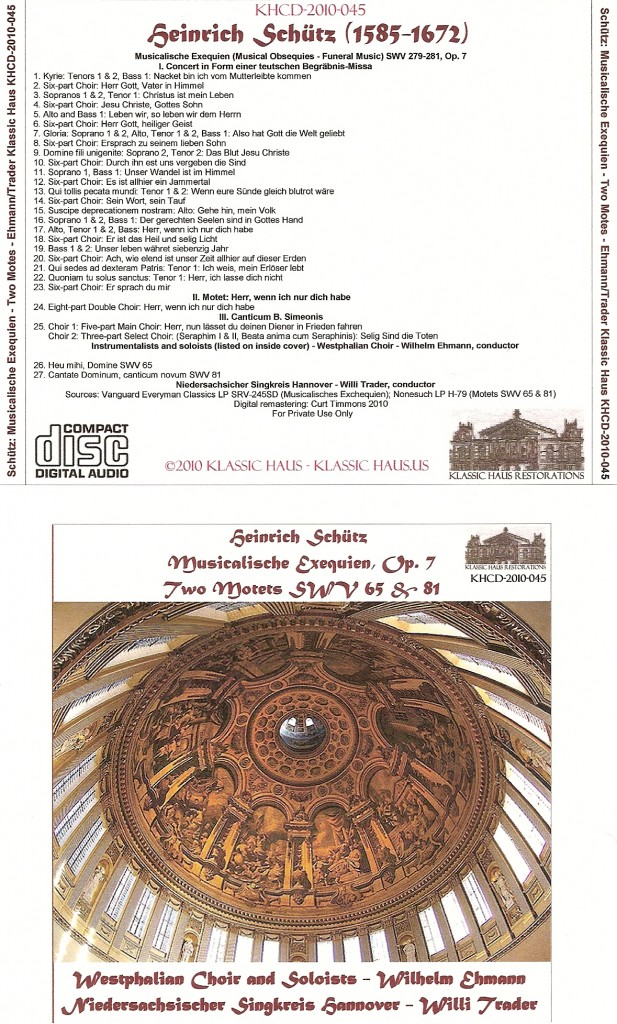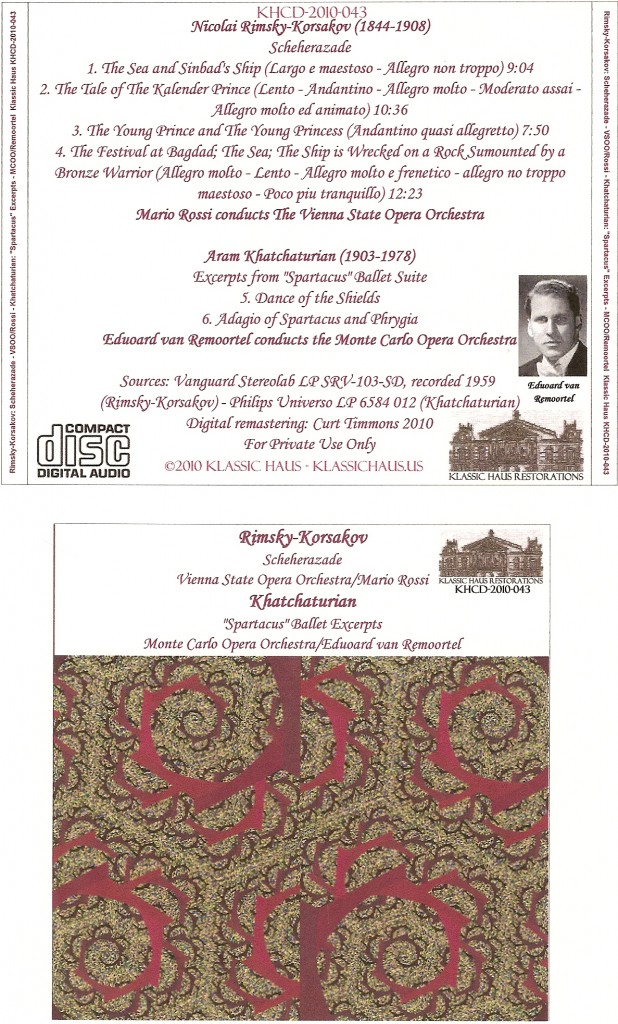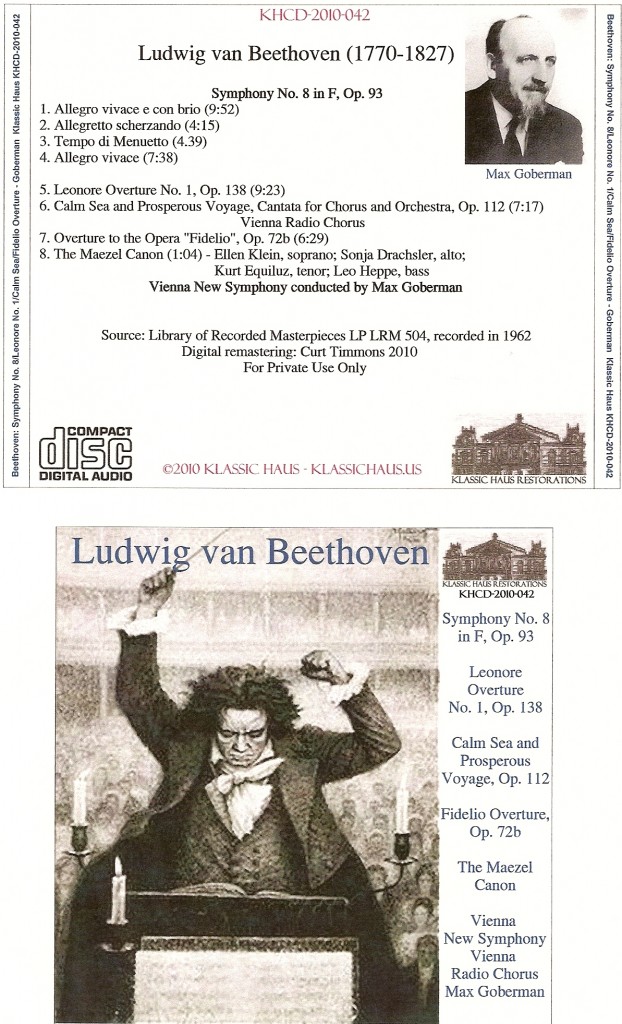Friday, January 14th, 2011
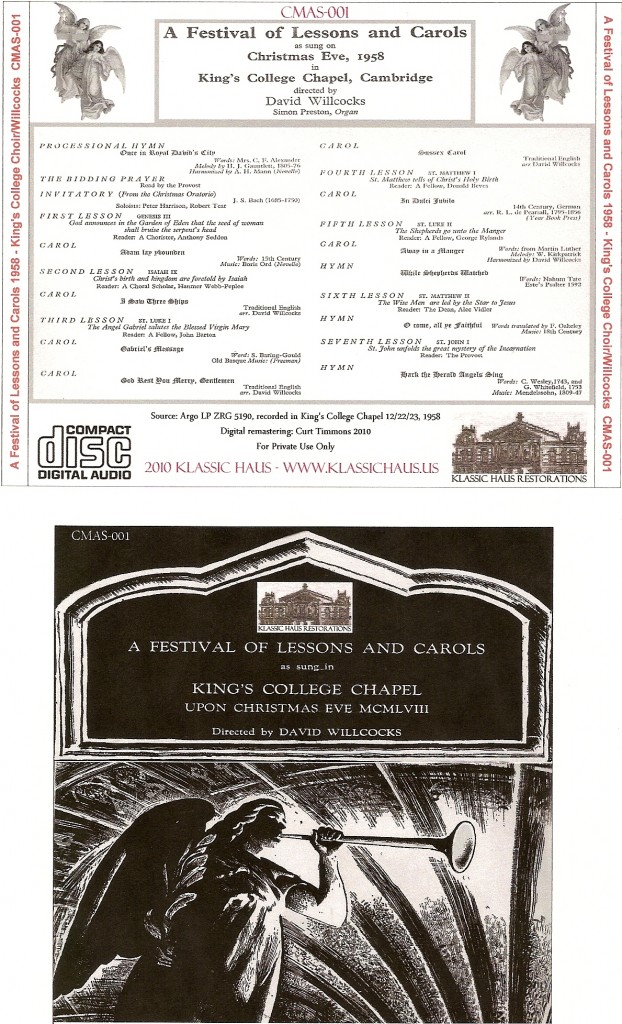 “A Festival of Lesson and Carols as sung in King’s College Chapel upon Christmas Eve 1958” has become a best seller on Klassic Haus Restorations. In fact, it sold more copies after the Christmas season than before! This recording is considered by many to be superior to later versions recorded by King’s. Here is an impression from one customer who purchased the CD, this one from the UK:
“A Festival of Lesson and Carols as sung in King’s College Chapel upon Christmas Eve 1958” has become a best seller on Klassic Haus Restorations. In fact, it sold more copies after the Christmas season than before! This recording is considered by many to be superior to later versions recorded by King’s. Here is an impression from one customer who purchased the CD, this one from the UK:
“The CD was safely received today. This is I believe the best version that they ever recorded. I bought my recording on vinyl in 1969 (Argo Records ) and I still have it in very good condition. However it is getting more difficult to find any decent equipment to play it on – hence the CD. Have you thought of offering Kings College copies of it to sell in their shop in the Chapel ?? They sell later versions. I do not know about copyright but Decca who aquired Argo do not seem to be interested in re-releasing it on CD even if they still have the original master.” Richard N., UK
This recording was derived from a near-mint Argo LP, and preserves the unique timbre of King’s College Choir Cambridge, with the then-new choir director David Willcocks conducting. What makes this particular recording so special is listening to the various speakers reading the Lessons; the striking differences in the accents of the speakers themselves adds to the quality of the production. I enjoyed restoring this disc, and I hope it continues to bring enjoyment to all who obtain it.
I have many new CDs that have been released on Klassic Haus Restorations; I will post the new titles later today. Thanks to all who have visited this blog in 2010, and have gone to the website from here to check out the CDs. I am trying to post at least 10 new CDs a month. I am beginning an English Cathedral Choir series, of which “Evensong for Ash Wednesday”, sung by the Choir of King’s College, Cambridge, with David Willcocks leading, will be released this weekend on Klassic Haus.
Keep checking back, for there is much in store at Klassic Haus Restorations! Thanks for your support. Cheers! Curt Timmons

